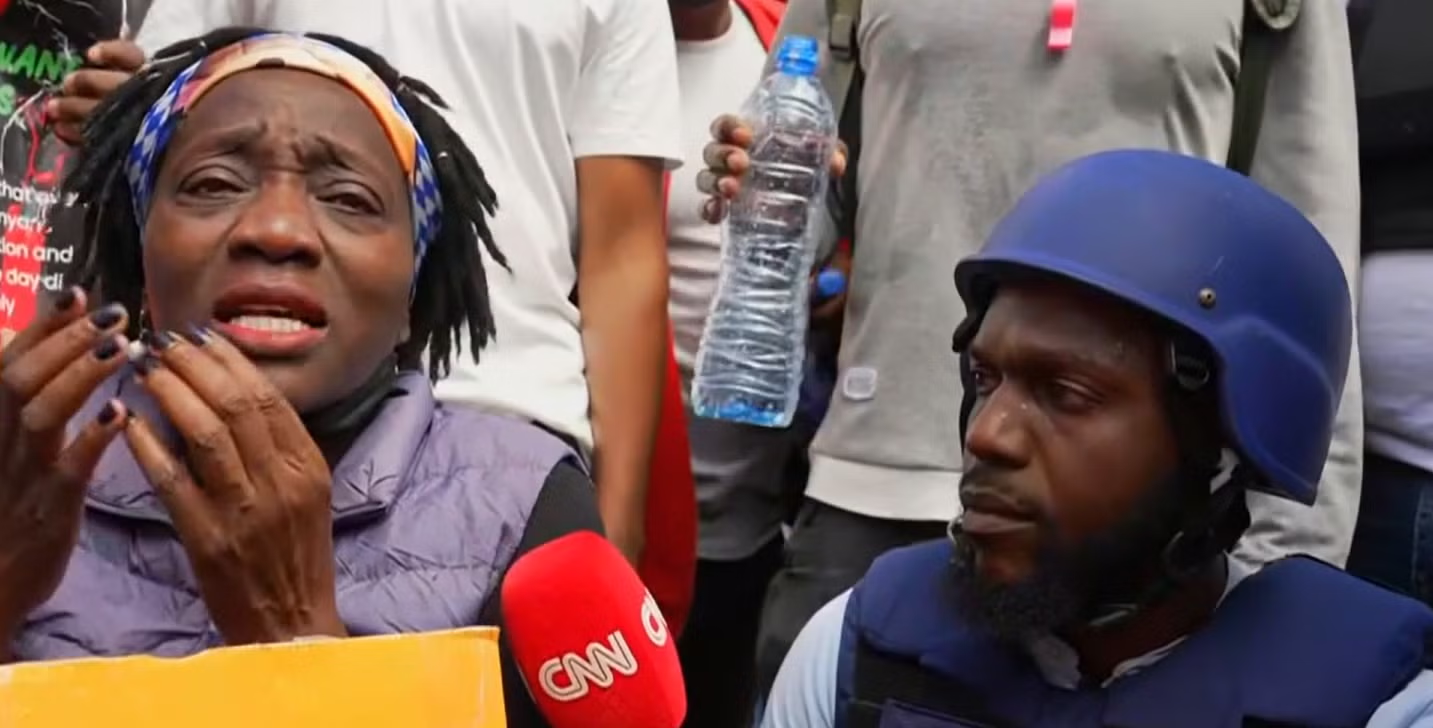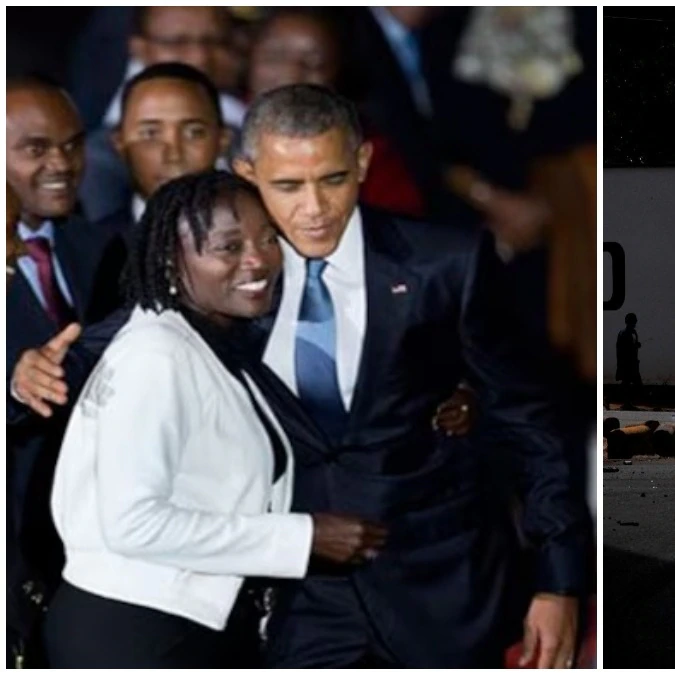Violent protests in Nairobi, Kenya, took a personal turn for the Obama family, as Auma Obama, half-sister of former US President Barack Obama, was tear-gassed during chaotic demonstrations outside the parliament building. The unrest erupted as protesters clashed with police over newly passed tax legislation, leading to a volatile situation that resulted in multiple deaths and injuries.

CNN footage captured the intensity of the scene, showing police firing tear gas at demonstrators attempting to breach the parliament building. The ongoing political tensions in Kenya significantly escalated as the chaos intensified, to the point where parts of the building caught fire.
Auma Obama, a prominent Kenyan activist, found herself amid the turmoil. In a brief interview with a CNN reporter, she struggled to speak through the effects of tear gas, stating, “I’m here because—look at what’s happening. Young Kenyans are demonstrating for their rights. They’re demonstrating with flags and banners. I can’t even see anymore.” She documented her presence at the protest with photos she posted on Twitter, showcasing demonstrators with placards bearing messages like “Colonialism never ended in Kenya.”

The incident has drawn international attention, not only due to the violence but also because of Auma Obama’s connection to the former US President. Barack Obama’s office has yet to comment on the situation involving his half-sister or the broader unrest in Kenya.
This event highlights the ongoing political and social tensions in Kenya, where issues of taxation and governance continue to be flashpoints for public discontent. The involvement of a member of the Obama family adds a layer of complexity to the situation, potentially drawing more global attention to the challenges facing Kenyan society.

As the situation in Nairobi continues to unfold, questions arise about the government’s response to public dissent and the long-term implications for Kenya’s political stability. The incident involving Auma Obama serves as a stark reminder of the personal costs of political activism and the volatile nature of public protests in regions grappling with deep-seated social and economic issues.
In the coming days, there will likely be more scrutiny of Kenya’s political landscape, as well as discussions about the role of international figures and their families in local activism. As the world watches, the events in Nairobi may prove to be a pivotal moment in Kenya’s ongoing struggle for political and economic reform.



